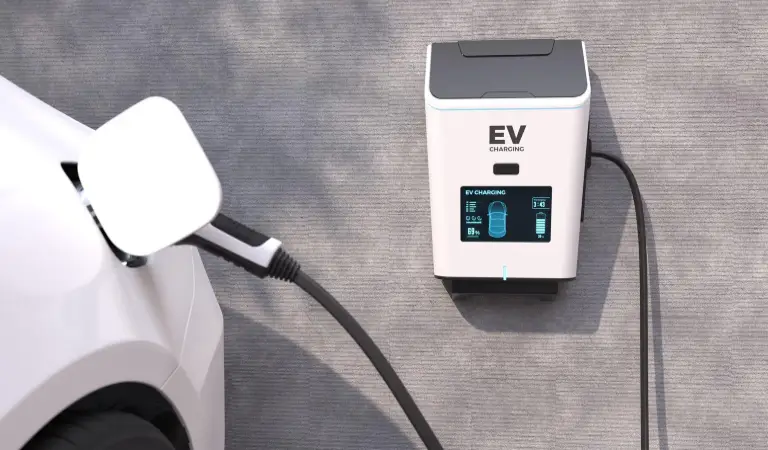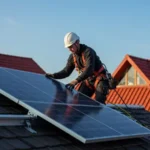

Electric vehicles (EVs) have arrived and are revolutionising driving; they are no longer a thing of the future. However, purchasing an EV involves more than simply avoiding gas stations; you also need to make sure that your home has a good charging system. Imagine putting your car in overnight after a long day, waking up to a completely charged battery and being ready to drive. Doesn't that seem convenient? Installing an EV charger at home is revolutionary for precisely this reason.
However, installing an EV charger at home entails more than simply plugging in a gadget. When choosing the correct charger, there are various variables to consider, including installation costs, safety constraints, and intelligent features. Hiring the best electrician in Sydney ensures that the installation is done correctly and fulfils all safety and electrical criteria. This blog talks about everything you should know regarding installing an EV charger at home to enjoy seamless and efficient charging. So, now you will be prepared to make an informed decision and take advantage of the convenience of home charging.
Not all electric vehicle chargers are the same. They are available in a variety of levels, and the best one for you is determined by your requirements. Level 1 chargers are the simplest option. They plug into a standard household outlet but charge very slowly, adding only a few kilometres of range per hour. While they might work for occasional top-ups, they aren’t the best choice for daily EV users.
Level 2 chargers, on the contrary, are significantly quicker and demand a special 240V circuit. Level 2 chargers are utilised by most EV owners since they can charge a car completely overnight, thus being perfect for everyday use. If you desire a faster and more convenient charge, then it is worth paying for a Level 2 charger. In addition, the majority of contemporary EVs are built with Level 2 chargers to operate efficiently, so they constitute a future-proof purchase for extensive use.
Installing an EV charger isn’t as simple as plugging in a new appliance. It often requires an electrical upgrade, especially if your home’s wiring isn’t equipped to handle a 240V circuit. A licensed electrician will assess your electrical panel to determine if it has enough capacity for the charger. If not, you might need an upgrade, which can add to the overall cost. In some cases, older homes may require significant electrical work to meet the power demands of a Level 2 charger.
The charger's position is also significant. It should be located in a garage or along a driveway where you store your EV most of the time. This lessens the need for expensive wiring improvements while also improving accessibility. For increased convenience, some choose an outside charger that is resistant to weather, particularly if they do not have a garage.
The cost of installing an EV charger varies depending on several factors. The charger itself can range from a few hundred to over a thousand dollars, depending on its features and brand. Installation costs can also differ based on your home’s electrical setup and whether upgrades are needed. On average, a Level 2 charger installation can cost anywhere between $500 and $2,000. If your home requires extensive electrical work, the overall expense can be higher, so it’s important to get a professional assessment beforehand.
However, many states and energy providers offer rebates or incentives that can help offset these expenses. Checking for available subsidies in your area can make a big difference in your overall costs. Research package deals when purchasing your EV since there are also some EV manufacturers that offer discounts on installation services or chargers.
Safety is an important consideration when installing an EV charger. Since this is a high-voltage electrical device, the installation should be according to local electrical regulations and safety standards. Having a certified electrician ensures that it is properly installed and safely. Certain locations also require permits before installation, so looking into the local regulations is crucial. Leaving these out can lead to fines or issues with insurance claims in the case of electrical malfunctions.
An installation of a properly installed charger not only guarantees efficiency, but also reduces the level of electrical danger. Regular inspections are also advised to ensure that the charger is in its best working condition. Some smart chargers even include inbuilt security features such as surge protection and temperature monitoring, offering a double layer of safety for your vehicle and home.
New electric vehicle chargers include capabilities to improve the charging experience. Because most Level 2 charging stations support Wi-Fi or Bluetooth, they can be accessed and operated via a smartphone app. Some charging stations also interface with home energy management systems to offer smart charging based on electricity rates. If you already have solar panels, you can configure your charger to charge from solar, thus making your EV charging experience eco-friendly and cheap.
Investing in a smart charger can add convenience and long-term cost savings by allowing you to schedule charging during off-peak hours. Certain models also provide real-time energy consumption data, allowing you to track usage and make more educated decisions regarding your electricity consumption. With the proper smart features, your EV charger can integrate effortlessly into your lifestyle while increasing efficiency.
Installing an EV charger at home is a smart investment that enhances the convenience of owning an electric vehicle. Choosing the appropriate charger, knowing installation requirements, and factoring in prices are all critical phases in the process. Ensuring safety compliance and looking at smart charging solutions can help you optimise your setup. With the appropriate strategy, you'll have a simple home charging system that makes owning an EV even more convenient. So, if you're ready to embrace the future of driving, installing an EV charger at home is an excellent place to begin.
 How to Choose the Right Lighting for Your Home
22 Jul, 2025
How to Choose the Right Lighting for Your Home
22 Jul, 2025
 7 Essential Electrical Tips for Home Solar Power Installation
02 Jun, 2025
7 Essential Electrical Tips for Home Solar Power Installation
02 Jun, 2025
 How Often Should You Check And Replace Fire Alarms?
06 May, 2025
How Often Should You Check And Replace Fire Alarms?
06 May, 2025
 Understanding Circuit Breakers: What Homeowners Need To Know
15 Jan, 2025
Understanding Circuit Breakers: What Homeowners Need To Know
15 Jan, 2025
 Childproof Your Home: 7 Key Electrical Safety Tips
27 Dec, 2024
Childproof Your Home: 7 Key Electrical Safety Tips
27 Dec, 2024